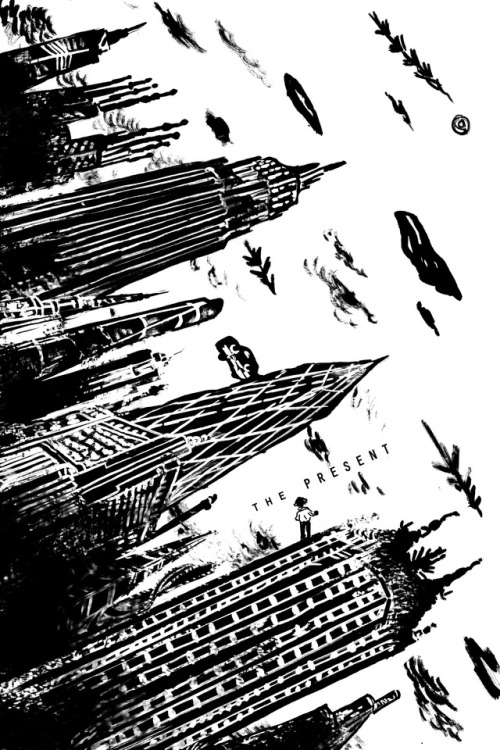 In DreamNet, the present, as amazing as it can be, is no longer something most people pay much attention to. Why would they bother? It’s currently, in the eyes of many, not that great at the moment. But, tomorrow, things will probably be better. The civil strife will go away, new technology will come to replace the increasingly passé DreamNet system, and all of the world’s major problems will be solved. They just have to enjoy their virtual lives a little longer and be patient. Someone will fix everything on the outside.
In DreamNet, the present, as amazing as it can be, is no longer something most people pay much attention to. Why would they bother? It’s currently, in the eyes of many, not that great at the moment. But, tomorrow, things will probably be better. The civil strife will go away, new technology will come to replace the increasingly passé DreamNet system, and all of the world’s major problems will be solved. They just have to enjoy their virtual lives a little longer and be patient. Someone will fix everything on the outside.
In 2081, drones perform most of the basic emergency tasks: police, fire, and medical. People get virtual copies of their homes when they purchase the real thing, to explore and show the world. Passengers on an airplane can spend the entire flight in the older, messy, and vast lands of a global virtual network, or perhaps sleep instead and connect to DreamNet. Martian colonists have their own DreamNet system as well, though its purely LAN. Entire businesses operate in these universe of code, sometimes never having any physical presence at all. Similarly, media has also shed its physical shell, but is available in anything that operates on a logic board.
It’s not all pretty distractions, though. Three countries are very much dug into darker, harder realities, experiencing civil wars. Most notably China, which is fighting for its future identity. Many cities have become “migrant towns,” taking in millions that have lost homes to the rising oceans. Construction may be booming, but the mass relocation and loss of family property is a malaise that makes the billions not effected simply want to look away, or turn back to their inner universes. While it’s not all bad in the old, real world—at least not everywhere, more and more, the masses seek an escape.
In DreamNet, anything is possibly. It is easier to create, as unlike the world inside a classic virtual environment, nothing relies on hard code, or texture work. Across the twenty massive DreamNet servers available, with landscapes that stretch on for more than a hundred miles, millions of minds shape and reshape the blended world of the fantastical, artistic, whimsical, and science-fiction. Cities, deserts, forests, paradises both above and under the ocean, and the sky and even space are all explorable. Game zones allow users to race, or engage in massive combat tournaments as they sleep under their halos in a comfortable bed. They create new personas, far different or more ideal than their actual selves. Or maybe they just hang around in a public meeting space, chatting, finding entertainment in a translated classic game or movie.
But does any of it mean anything greater than even the most primitive of early internet chat rooms from nearly a century in the past?
Not everyone thinks so. Some even want it all erased, because in their eye, DreamNet is the latest in a long series of attempts to escape the real world entirely—one that we perhaps brought to the brink of ruin many times, and yet now seek to abandon in pursuit of a digital paradise.
Aside from general system instability recently brought on by stressed servers and software brought to its breaking point, DreamNet staffers are also currently dealing with a mysterious group of users who seem able to evade all efforts to identify or permanently ban them. And they’ve figured out how to bend the system to their will, even detonate “logic bombs” that render entire sectors of the Dreamscape into blank, damaged voids of white. And they may only be the beginning of far greater attacks.
While most users only find these problems to be a nuisance, the company, and its retired founder, are about to enter the last phase of a long-running feud on how best to update the twenty-year old system for the next century.
One way or another, DreamNet will very soon experience a seismic change. And this time, it’s no mere monthly software update…
